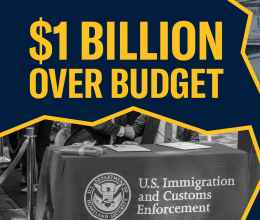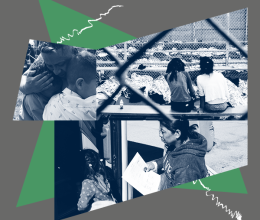
Poorer, Not Safer
By Terri Burke, ACLU of Texas Executive Director
Using more state money on expensive, high-tech equipment to fight crime near the Texas-Mexico border is a waste of money, unless you consider $153,800 per arrest a bargain.
So far 29 border cameras installed at a cost of $4 million have been used to set up the Virtual Border Watch program that mostly catches the movements of desert wildlife. Internet viewers have helped police make a total of 26 arrests over four years of the program, according to a recent report in the Texas Tribune.
Our 2009 report on Operation Border Star (PDF: Part 1, Part 2, Part 3) a state funding program for local law enforcement, showed just how wasteful and ineffective it is to divert state resources and manpower for enforcement of federal immigration law. State grants to local law enforcement should be focused on drug-related violent crime, not apprehending undocumented persons.
I reiterated our position in written testimony delivered to the state House of Representatives Border & Intergovernmental Affairs Committee chaired by Rep.Veronica Gonzales. The committee met Thursday in McAllen. The purpose of the hearing (held jointly with the Committee on Public Safety) was to take testimony on the effectiveness of state operations at controlling drug-related crimes and other violence along the Texas-Mexico border.
So far, state funds have been used to buy low-yield but high-priced technology and to pay for ineffective policing that relies on racial profiling or intrusive road stops that do little to stop violence along the border. More often, inconvenience or harassment is the main result, not the apprehension of violent criminals.
Here’s a classic example: From May 2008 through October 209, Operation Border Star patrols in one county paid for 4,725 traffic stops. The result? Two drug arrests -- resulting in the seizure of one ounce of marijuana and trace amounts of cocaine -- and not even one arrest of known gang members.
The State of Texas is facing an $11 billion shortfall for the next biennium. We cannot afford to spend another $112 on inefficient programs that make us poorer, not safer.
Related Issues
Related content

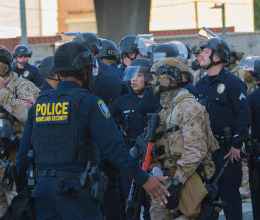
How Expanded 287(g) Program Turns Local Police Into Deportation Agents
September 10, 2025
New Detention Camp at Fort Bliss Marks Dangerous Expansion of...
August 18, 2025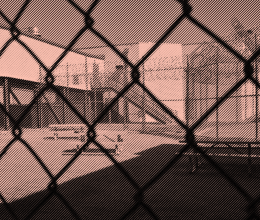
ACLU of Texas, ACLU Statement on Trump Administration’s Use of Fort...
August 15, 2025
Trump's Birthright Citizenship Executive Order: What Happens Next
August 6, 2025
Rümeysa Öztürk On How We Can All Support Immigrants
July 17, 2025
Federal Appeals Court Denies Texas’ Request to Allow Extreme Anti...
July 7, 2025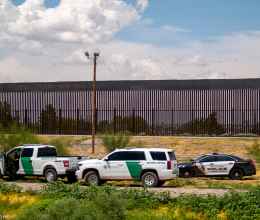
Federal Court Blocks Trump Administration Efforts to Completely...
July 2, 2025